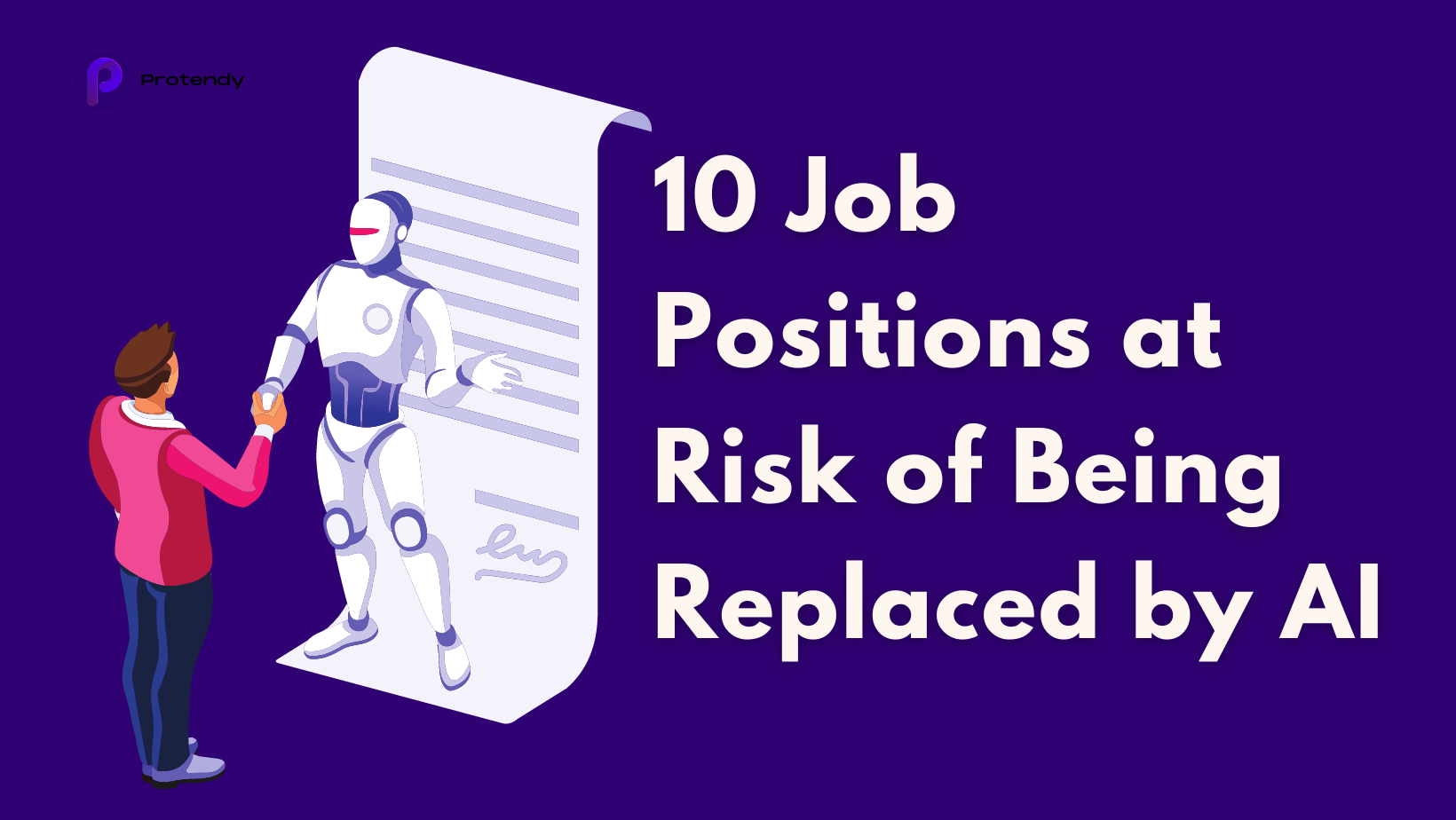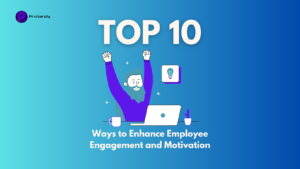In the ever-evolving landscape of modern workplaces, a powerful transformation is underway, driven by the remarkable rise of Artificial Intelligence (AI). As industry giants like ChatGPT and OpenAI lead the charge, AI’s ability to process vast data, automate tasks, and drive innovation is reshaping entire sectors, promising newfound efficiency and potential. However, amidst the impressive advancements, questions loom regarding the potential impact on job roles. While AI, with shining examples like ChatGPT and OpenAI, presents a host of compelling benefits—ranging from enhanced decision-making to elevated productivity—it simultaneously introduces ethical considerations and uncertainties about workforce dynamics. This intricate dance between AI’s potential advantages and potential drawbacks highlights the importance of a strategic and conscientious approach. As we embark on this journey into an AI-enhanced future, the guidance of industry trailblazers like ChatGPT and OpenAI will undoubtedly play a pivotal role in shaping a harmonious and impactful coexistence between human ingenuity and technological progress.
Table of Contents
ToggleAdministrative Assistants
AI has the potential to significantly impact Administrative Assistant roles by automating routine tasks such as scheduling appointments, managing calendars, and responding to basic inquiries through AI-powered chatbots. These technologies can streamline administrative workflows, reducing the need for manual intervention in repetitive processes. Additionally, AI can facilitate document management, data entry, and report generation, optimizing efficiency. While AI can handle these tasks, Administrative Assistants may transition towards more strategic responsibilities such as analyzing data insights, making informed decisions, and focusing on complex problem-solving. This shift could empower Administrative Assistants to contribute more meaningfully to decision-making processes within organizations while AI takes care of administrative minutiae.
Data Entry Clerks
AI stands poised to transform the role of Data Entry Clerks by automating the labor-intensive process of inputting and managing data. Through advanced data extraction algorithms and optical character recognition (OCR) technology, AI can swiftly and accurately digitize information from various sources, including handwritten documents and scanned images. This automation not only reduces the risk of human errors but also accelerates data processing, enhancing overall efficiency. Moreover, machine learning algorithms can learn and adapt to data patterns, gradually improving accuracy over time. While AI handles the mechanistic aspects of data entry, human oversight remains crucial for quality control, exception handling, and addressing complex data scenarios. Data Entry Clerks may consequently evolve into data quality managers or analysts, focusing on refining AI models, resolving exceptions, and ensuring the integrity of the data being processed. In this transformed landscape, AI complements human expertise, allowing organizations to allocate resources more strategically and maximize the value extracted from data.
Receptionists
AI’s impact on Receptionist positions can be profound, thanks to the advent of sophisticated chatbots and virtual assistants. AI-powered chatbots can efficiently handle routine inquiries from visitors and callers, directing them to the appropriate departments or providing relevant information. These chatbots can be integrated into websites, mobile apps, or even deployed as standalone kiosks in physical locations. Furthermore, voice-based virtual assistants like Amazon’s Alexa or Google Assistant can be utilized at reception areas, allowing visitors to interact naturally using voice commands for queries or directions. By automating these tasks, AI-driven receptionists can offer 24/7 support, ensuring a consistent and prompt response to inquiries. While AI streamlines the front desk duties, human receptionists can concentrate on more complex interactions requiring empathy, emotional intelligence, and nuanced decision-making. Additionally, they can focus on providing personalized services, resolving unique issues, and creating a welcoming atmosphere for visitors, which are elements that remain challenging for AI to fully replicate.
Travel Agents
AI’s influence on Travel Agent roles is evident as advanced algorithms and data analytics reshape the travel industry. AI-powered platforms and apps can swiftly analyze vast amounts of travel data, including flight options, accommodation choices, and local attractions, to offer tailored itineraries to travellers. Machine learning can predict travel trends, optimizing pricing strategies for airlines and hotels. Chatbots can guide customers through booking processes, answer queries, and even suggest personalized travel packages based on preferences and historical data. While AI excels at processing data and simplifying booking procedures, Travel Agents continue to excel in providing intricate travel solutions that require human intuition, cultural awareness, and creativity. Handling complex itineraries, addressing unforeseen travel disruptions, and offering personalized recommendations for unique travel experiences remain areas where human expertise remains indispensable. To adapt, Travel Agents can embrace AI tools as assistants, leveraging data-driven insights to enhance their service quality, automate routine tasks, and allocate more time to cultivating client relationships and crafting extraordinary travel adventures.
File and Records Clerks
Artificial Intelligence (AI) has the potential to significantly reshape the role of File and Records Clerks by automating and optimizing the management of organizational documents. AI-powered document management systems can categorize, tag, and organize digital files, making retrieval and archival processes more efficient. For instance, AI algorithms can automatically classify documents based on content, date, or relevance, ensuring proper organization and ease of access. Additionally, Optical Character Recognition (OCR) technology enables AI to extract text from scanned documents, transforming them into searchable digital formats. While AI excels at handling routine tasks associated with file organization and data extraction, human expertise remains vital for contextual understanding, decision-making, and handling exceptions. Records Clerks can adapt by overseeing AI systems, ensuring data accuracy, and refining classification models. Furthermore, their role can evolve to focus on analyzing trends within organizational data, safeguarding sensitive information, and implementing effective data governance strategies. In this symbiotic partnership between AI and human expertise, organizations can optimize information management, streamline workflows, and make more informed decisions.
HR assistants
The role of HR Assistants can undergo transformative changes with the integration of Artificial Intelligence (AI). AI-powered tools can streamline routine tasks such as initial resume screening, interview scheduling, and answering employee queries. For example, chatbots can engage in real-time conversations with job candidates, providing them with information about the company and the application process. AI algorithms can analyze large volumes of applicant data, shortlisting candidates based on predefined criteria. While AI excels in handling repetitive tasks, human HR Assistants continue to be indispensable for tasks requiring emotional intelligence, nuanced decision-making, and understanding the intricacies of human behavior. HR professionals can leverage AI to enhance efficiency by automating administrative tasks, thus freeing up time for strategic initiatives like crafting innovative recruitment strategies, conducting in-depth interviews, and fostering a positive workplace culture. This collaboration between AI and human expertise ensures a comprehensive and balanced HR approach that maximizes the potential of technology while capitalizing on the unique qualities of human interaction and empathy.
Payroll Administrators
The landscape of Payroll Administration can undergo significant transformation through the integration of Artificial Intelligence (AI). AI-powered systems can automate payroll processes by accurately calculating wages, taxes, and deductions based on established rules and regulations. For instance, AI algorithms can process time and attendance data to ensure precise compensation, reducing the likelihood of errors. Moreover, AI can facilitate seamless integration with financial systems, enabling timely and error-free direct deposits. While AI optimizes these operational aspects, the expertise of Payroll Administrators remains vital for interpreting complex labor laws, handling exceptions, and addressing individual employee concerns. Payroll Administrators can capitalize on AI to streamline routine calculations and data entry, thus devoting more attention to strategic functions like analyzing compensation structures, conducting salary reviews, and ensuring compliance with evolving regulations. This synergy between AI-driven automation and human oversight ensures accurate, efficient, and compliant payroll processes that meet both the organizational and individual needs of employees.
Procurement Specialists
Artificial Intelligence (AI) has the potential to reshape the role of Procurement Specialists by optimizing and automating various aspects of the procurement process. AI-powered tools can analyze vast amounts of data to identify supplier trends, evaluate vendor performance, and predict demand patterns. For instance, AI algorithms can swiftly assess supplier credentials, financial stability, and historical delivery performance, facilitating more informed decision-making. Moreover, AI can streamline inventory management by predicting stock levels and optimizing reorder points. While AI excels at data analysis and pattern recognition, the expertise of Procurement Specialists remains indispensable for strategic negotiations, relationship building with suppliers, and handling intricate procurement scenarios. Procurement Specialists can leverage AI to expedite routine tasks such as data analysis, contract management, and supplier communication, thus allowing them to focus on strategic initiatives like fostering innovative supplier partnerships, negotiating complex contracts, and mitigating supply chain risks. By harnessing AI’s capabilities in tandem with human acumen, organizations can enhance procurement efficiency, reduce costs, and drive sustainable value from their supplier relationships.
Financial Analysts
The role of Financial Analysts can undergo substantial transformation through the integration of Artificial Intelligence (AI). AI-powered algorithms can swiftly process and analyze vast datasets, enabling rapid financial modeling, trend identification, and risk assessment. For instance, AI can predict market movements, optimize investment portfolios, and conduct real-time sentiment analysis to gauge market perceptions. Additionally, AI can automate routine tasks such as data entry and report generation, freeing up analysts’ time for more strategic endeavors. While AI enhances data-driven analysis and pattern recognition, the interpretive skills, strategic thinking, and qualitative insights of Financial Analysts remain irreplaceable. Complex financial decisions, understanding of macroeconomic trends, and client relationship management require the human touch. Financial Analysts can leverage AI to expedite data processing, conduct comprehensive risk assessments, and enhance scenario modeling, allowing them to focus on critical thinking, crafting investment strategies, and offering personalized financial advice tailored to clients’ unique goals. This synergistic alliance between AI-driven data processing and human expertise paves the way for a more informed, efficient, and insightful financial analysis landscape.
Journalists
The impact of Artificial Intelligence (AI) on the field of journalism has been profound, with AI technologies demonstrating the ability to generate news articles quickly based on structured data, such as financial reports or sports scores. AI-powered systems can analyze large volumes of data, extract key information, and create coherent narratives, enabling automated content production. For instance, financial news updates, weather reports, and sports recaps can be generated efficiently by AI algorithms. However, while AI excels at data-driven reporting and routine news updates, the nuanced storytelling, investigative journalism, and human perspective brought by journalists remain invaluable. Complex analysis, in-depth interviews, understanding cultural contexts, and crafting compelling narratives are aspects where human journalists excel. Journalists can collaborate with AI to harness its data processing capabilities, thus enabling more time for investigative work, fact-checking, and producing unique, human-centered stories that resonate with audiences. This collaboration presents an opportunity to blend AI-generated content with human creativity, ethics, and critical thinking, resulting in a dynamic and informative journalism landscape that serves the needs of an evolving media landscape.
In the rapidly evolving landscape of technological advancements, the potential impact of AI on various job positions is undeniable. As we anticipate the future, it becomes increasingly clear that certain roles could undergo significant transformation or even replacement by AI-driven systems. While these shifts present opportunities for efficiency and growth, they also raise important questions about the future of work and the importance of adaptability. As we navigate this transformative journey, staying informed and proactive is essential. For further exploration into this ever-evolving realm and related insights, be sure to visit our Knowledge Hub on Protendy. Here, you can delve deeper into the intersection of AI and the workforce, gaining valuable insights that can guide us toward a harmonious integration of technology and human expertise.










